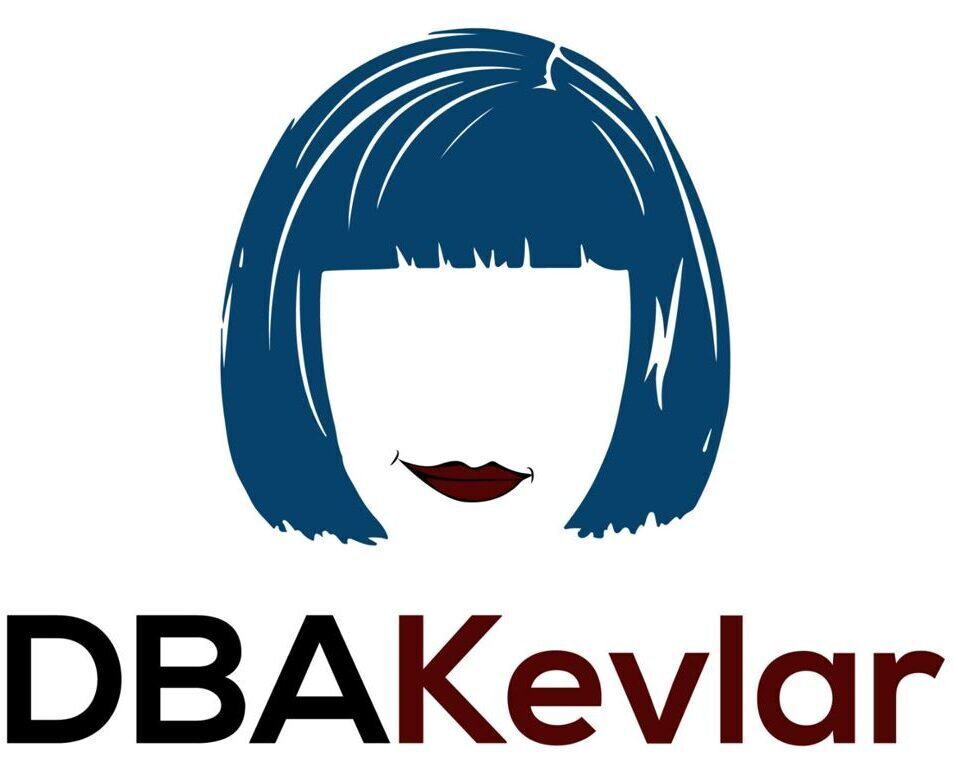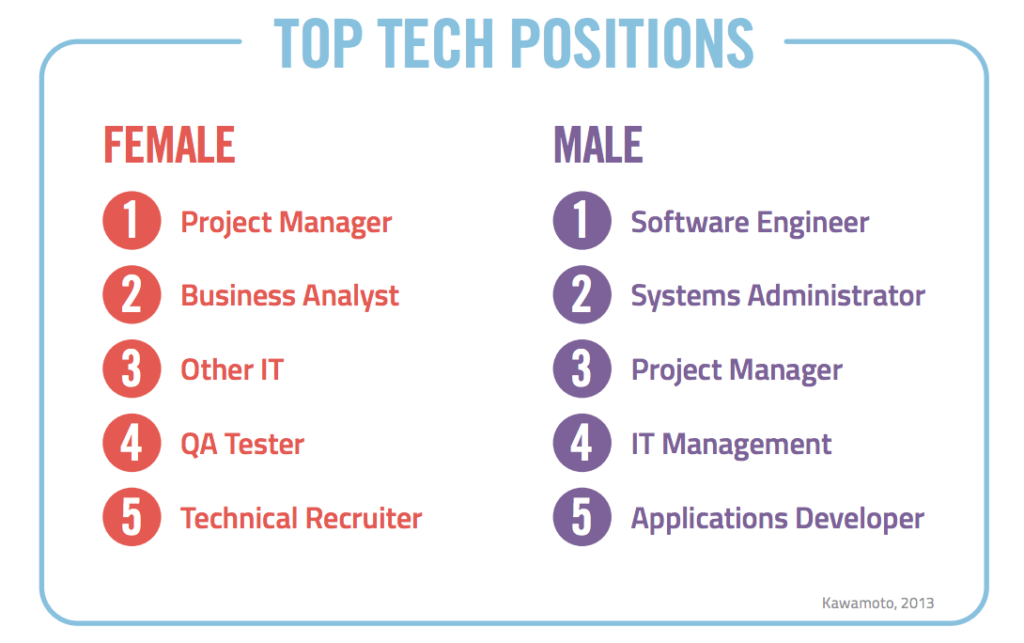Ten Things I Really Hate About Tech Today
I love working in tech. I can honestly say that nothing gives me greater satisfaction than working on a technical challenge or having a brilliant conversation about technology with peers. Other days I feel like a broken record having the same conversations with the women in technology around me, facing a lack of diversity and the consistent exclusion in tech. Until this changes, the beatings will continue and my expression may often look similar to Alan Rickman’s below:
“Rants are good for the soul and even better for the world. Some times, some things just need to be said.”
Delphix has done an incredible job with diversity and inclusion. They’ve actually created a Diversity Counsil, a charter and initiatives to address many of these challenges I’ve listed below. It’s an impressive and powerful move by an incredible company.
So for the rest of you, listen up, build a bridge, get past it and just stop doing the things on this list. It hurts me to my core to hear that so many are still experiencing these-
- Interview for Team Acceptance
“I’d like you to come in for a final interview to make sure you fit in with the team.”
This is almost a guaranteed step in the interview process and yes, upon first view, it sounds reasonable that a manager would want to ensure a candidate worked well with their peers. This practice was first embraced in the technical field with good intentions, but it has direct correlation to limiting team diversity.
Remember back to school- think about how each clique developed simply by how you looked, your background and your preferences? Yeah, this is exactly what continues to happen in tech- white, geeky dude clique.
One of the things I noticed from many of the articles on team interviews is that they often occur in a social situation, over drinks, including beers or other alcoholic beverages. This is bound to deter from diversity in candidates who might find it uncomfortable for one reason or another and hinder them from making it to the final interview stages.
The end result is teams with limited skills and they aren’t able to balance out for each other’s weaknesses and strengths. Often the team members are so much alike they’re unable to innovate at the level that’s required in tech.
Yo, hiring manager- kudos having the team meet the candidate, but do your job and create a team that has the diversity to weather storms, differing demands and requirements. Create a tech team that has the diversity that will create the technology of tomorrow to serve the diverse ecosystem of today.
- Hurt Feelings
“It’s difficult working with women, they get their feelings hurt.”
I don’t know how often I’ve heard this from both men and women about working with women. Don’t be surprised; if you say to me, “I don’t want to hurt your feelings…” I stop you mid-sentence and tell you it’s not my feelings you need to worry about. I’m more analytical than 90% of the people I work with and my assertiveness or passion isn’t any different than my male counterparts.
Even CNN distinguishes between women’s feelings and men’s ego and yet, I know for a fact that talk of ego resonates with me more than feelings. The same ego persists for the guys that have delayed deadlines in projects or sabotaged a colleague, all because their “egos were bruised.” I think it’s easier to refer to a man’s ego than ever refer to his feelings, but let’s be honest- the situation often stems from the same source.
Culture often dictates to people, “just stroke his ego and you’ll get along fine with him.” We’ll often claim a bruised ego in the safety of male approval, where we brush off a woman who’s dared to claim value for herself. Instead of just asking women to toughen up and tell others to just suffer through a man’s bruised ego, tell everyone to stand down- We’re all in this together.
- The Silent Treatment
“Women fail at collaboration.”
I was reading an article on why women fail at collaboration. If I had a dollar for every time I’ve contributed to a conversation among a group of tech guys on a forum or in a slack channel and heard nothing but crickets, well, I’d most likely be here instead of writing this post. Seriously, the same conversation, one of my male peers enters the conversation or says almost the same thing and there are a slew of responses.
Many women mention this issue and we’re all a bit perplexed by it, but what I have gleamed so far is- ½ the folks, (both men and women) are simply observing, trying to figure the woman contributor out and the other ½ is freaked out and doesn’t know how to respond. If this continues for an extended period of time, the woman simply gives up and stops wasting her time.
Women are still told, (not as directly as in the olden days) to not speak unless we’re spoken to. This often creates a scenario where women end up looking for an invitation to be part of the conversation, yet we don’t offer this and when they do speak up, (I’m one of the mouthy ones) I can confirm that someone will advise her to speak less or to be more conservative. I’ve NEVER heard anyone tell a man to step back when owning a conversation.
Even worse are those hell bent on silencing the woman in the conversation. These guys are commonly “equal-opportunity bullies” and have no doubt, they will go after men in the group they see as a threat, too. The only target identifier these guys need is a willingness to give someone else the benefit of the doubt.
My recommendation- If you’re not engaging the women in the room- start doing so. If a woman asks a question, assume she already knows 90% of the answer, but would like to collaborate. This will eliminate 80% of our favorite hobby- “mansplaining.” 🙂 If you’re the one who’s out to prove you’re the smartest guy in the room– just stop. The only thing you’re proving to anyone is that you’re a liability to the company.
- Crediting Others for a Woman’s Contributions
“Great Job on XXXXX <female employee> and <male colleague that shouldn’t be listed>!”
There is significant concern with gaining men’s approval and we do this by ensuring men get credit for their contributions. There is absolutely nothing wrong in recognizing what other’s accomplish. However, no one realizes how often I hear from women who’ve performed over 90% of the work on a task, project or an event, where a man has been recognized publicly as 50%-100% the contributor or even worse, men are officially offered a role that a woman’s been previously or continually fulfilling. Numerous articles can be found where historical innovations and discoveries were credited to men either intentionally or unintentionally.
This issue resonates with me, as I live and work an almost unheard of scenario. My husband and I not only work in the same field, we work for the same company and serve on the same board of directors. I stopped counting how often people unintentionally give Tim 50% or more credit for work I’ve contributed. My husband is a humble person and he goes out of his way to support other’s contributions repeatedly and I appreciate all he does to help me whenever he can. He was my first mentor and he’s an astounding supporter of many in the tech community. In turn, many would recommend we speak up or assertively address when credit is incorrectly given, but we’re just as often told we’re taking it too personally if we do. Don’t ask me to provide proof that I’ve experienced it, (although, I’m still linking throughout this post) there’s signifiant examples and the outcome is either you make others look bad or someone shoots the messenger..
- “Padding” The Amount of Women in High Tech with Soft Tech
“There’s almost 30% women in tech. That’s quite good!”
This was a difficult topic to discuss, as I state elsewhere, each woman has the right and should have the respect to follow her own path. At the same time, there’s a real issue with stats being “padded” with how many women are in tech, by supplementing high tech with soft tech.
This often happens because even in high tech, there’s three main “factions” of women:
a. There are the women who work in the technical industry and have been told it’s best to just avoid this debate.
b. Second group who are inclined to make the quote above and see most discussions on the topic as negative, only allowing to focus on the positive.
c. Third group are talking to each other and are like, “Houston, we have a problem.”
We know the second group means well, but I’ve heard more than one WIT refer to them as the “happy/shiny people.” I’m clearly aware of the difference in struggles between “soft tech” and “high tech.” There are some overlaps, but it’s still a very different world for those that are in recruitment and project management. Data on soft tech doesn’t show the challenges with retaining women after four years that high tech does, demonstrating that there are facets of these two areas that need to be identified. Stating that this is proof that women aren’t interested in tech is just simplifying the situation and avoiding the data again. Using it to dispel the focus on diversity initiatives in tech or to make it appear there are more women in high tech than there is has never sat well with me.
Even NCWIT, (National Center of Women in Technology) include Project Managers and Recruiters in with their numbers as we can see in the “Top Tech Positions” breakdown by gender:
I think we’re all aware that if we separated high tech from soft tech, we’d see different trends and I believe it would create some interesting analysis to show how we can improve these industries for everyone involved if we did.
- Demanding Women ALWAYS Agree with Other Women in Tech
“You’re taught to look down on the women who have made choices that are dissimilar to yours. “
When men disagree with other men in tech or business in general, it’s no big deal, but if women disagree with each other? That’s just how women are according to culture. It happens in every area of business and it’s exhausting to me. Women all have their own path and this should be as acceptable as men’s. There are plenty of women I don’t agree with, but if you use bias or are unfair to any of them, I’m going to defend them as readily as anyone- plain and simple. People seem to be more than happy to try to turn women against each other- I know I’ve been made a fool of it more than once and had to learn to not allow myself to be part of it.
I’m proud of the women I’ve recently observed in tech and how they not only support each other, but they refuse to let other’s success detract for their own path. Another person being successful has no bearing on your own.
- It’s Rough All Around
“It’s bad for diversity in general” or Other Ways to Dispel the Topic
I rarely if ever, find this behavior between women in technology, people of color or gender diversity, but it’s commonly from someone who’s privileged in response to a conversation on women in technology. They want the originator to justify why they haven’t included other areas of diversity.
I can’t pretend I’m a person of color or that I can represent anyone other than a white woman in technology. I will support diversity fully, but please don’t ask me to appropriate someone else’s experience. Don’t ask me to dispel my argument by not including it in my own experience. These types of comments really only serve to make the speaker and reader choose between two evils and minimize the facets of a complex issue into a single conversation. Both topics are incredibly important and deserve equal billing and not shared focus by a representative who may only fall into one category.
Women in tech became a hot topic back in 2014- at this time, people became a bit overwhelmed by all the attention given to it. The sudden rise of women in technology often resulted in people attempting to derail it by distracting the course with claims that ignorance of diversity was reason to stop supporting the movement all together. One of my favorite organizations dropped their “Women in Tech” award for a “Talent Champion of the Year”. Women in high tech left the organization in droves.
All the diversity numbers just suck, so lets quit making these groups compete against each other for time.
- Women Online, No Thank You
“I get it, you women have a hard time online…”
Some days social media and online forums are a great place to be. At the same time, don’t for a minute think you understand what it’s like to have someone ask you a technical question or even 2 or 3 technical questions…to be followed by a comment about how he’d like to be with you intimately.
I’m privileged- having a scenario in tech that many would appreciate. Not only is my husband known in the industry, but he’s also been met by many folks through the years he’s spoke at conferences and taught classes. This shouldn’t matter- who I am should be enough to grant me to be treated with the same respect as my male peers, but in most cultures and as we’ve already discussed, keeping my husband’s respect is important. I can’t tell you how often the mention of my husband’s name has been necessary to remind someone that they needed to change the direction of a conversation with me.
If you’re a single, woman in technology, you have my sincere respect. When I first entered the online tech arena, I was married, but as I started to speak and my career advanced, I divorced. My name changed and I started to receive odd emails and experienced peers who’s interaction with me suddenly changed along with my name. I have to admit, I wasn’t prepared for this. I felt uncomfortable and had a difficult time understanding how their view of me could have changed with a simple change in my signature line.
No matter what you think, studies show that women are not acting in a flirtatious manner with the men online and it’s often just a miscommunication. I think the thing we can take away from this is guys- no matter if you think there’s a chance or not, there is a bigger chance that you’re going to be that one guy to ruin the perception of men in tech for everyone else, so just don’t even think about telling a woman on Twitter, LinkedIn, tech forums, etc. what you find attractive or sexy about her, OK? We’ll all appreciate it later when we run into each other at events or she ends up being the tech lead at your next interview. Not that I’ve ever had that happen first hand.
9. Lean in
“Why aren’t there more women <evangelists, politicians, CEO’s, etc.>?”
Its normal for me to emulate those around me. Its what most of us do and for me, that means there’s a 95% chance I’m emulating whatever has been successful that the guys are doing. People, there’s also a 95% chance that you will react to me doing the same assertive, ballsy, gutsy, awesome thing the guys did as aggressive, bitchy, out of line and negative. It will often leave women confused and frustrated, trying to figure out how we’re supposed to get ahead and how to strategically maneuver in the world when what works for men doesn’t work for us.
My male peer in the evangelism group can state his opinion about where he thinks technology is going and people applaud him for his vision, I document and link to data to show what I believe is the direction for a topic I’m considered an expert in and I’m asked to offer more proof.
Even those that know my professional credentials still are challenged. I complimented another speaker on their DevOps talk on social media while at a conference recently. Someone quickly replied to me with the following tweet:
I had to bite my tongue to keep myself from replying, “Really?? Do, tell me more!” The “mansplaining” wasn’t intentional, but I also hadn’t asked “Is Delphix a DevOps product?” I had complimented ANOTHER speaker at the conference on their DevOps presentation.
Its pretty difficult to be an evangelist when, even unintentionally, you have people repeatedly, telling YOU what your product does when it’s supposed to be your job to perform that task. I’ve joked that you haven’t lived as a woman in tech until the day a guy in marketing explains technology to you. I can’t imagine how often women in politics have the bill of rights and how the branches of government function explained to them….daily.
10. Wasting Women’s Time
” Everything I asked or suggested was questioned. Clients I could do in my sleep were condescending.”
While my male peers will ask a question and get an answer in return, I’ll spend more time justifying to people why I need an answer, have my questions reworded, or have more questions returned and other time wasters. Even men who’ve experienced the challenge of being a woman in the workplace have written on these frustration, even if only experienced in an email signature.
I have had repeated situations where a goal and/or deadline were critical, either professionally or for an organization I volunteer for and knowing that being a woman would delay or impact getting the solution in time. I have the fortunate option to go to my husband or a male peer, sometimes be perfectly frank with them and have them take up the cause to ensure it’s done in a timely manner. I’ve completed paperwork and written letters, but put my husband’s name on it so there wasn’t a delay with ridiculous questions or requests for proof that I knew they’d never ask from him.
It gets down to trust. If we question men, we’re often viewed as challenging their word and their word is their bond, truth and trust. For some reason, we assume that women are less trustworthy and must be scrutinized at a level that a man are assumed to busy to spend the time on.
For women, we’d better have our ducks in a row, because they’re going to be checking every feather and most likely check the next door neighbor’s pond while they’re at it. I have made it a point- if you waste my time, the first time, I give you a break, the second time, I will go out of my way to work with someone else who values my time and that of the company I represent more.
Rant over.





I had a similar conversation with a woman yesterday and my jaw hit the floor. I can’t imagine someone with your talent being dismissed in that manor. It baffles the mind.
A lot of was said resonates with me. The one part that didn’t was about women project managers and recruiters that “rarely are they missing the support system and acceptance in their role that women in high tech have.” I get tons of mansplaining about all areas of project management from the tech boys and they treat me like the head of the secretarial pool rather than the head of the PMO.
Hi Kristina- You’re right! I often hear the challenges of having their jobs explained to them constantly. There’s never enough words to explain the complex and my thought was in line with the “lonely high tech woman” where our friends outside of work don’t get our environment and all the guys in our department are like, “What? I don’t get what the problem is…” 🙂 I used to go down to the project manager, product managers and recruiters, as they understood completely.
For sure. Sadly, technical or not, to be a professional woman (particularly in tech) is to be constantly underestimated.
Thank you. As a white male I have found that diverse environments are more pleasant places to work.
Dear Kristina and Kellyn,
Help me, help you, help me, please. I don’t want to hurt your feelings, oh wait, I’m not capable of that, so scratch that, note that I did not say “sorry” because
that is a “woman-ator thing”.
“Mansplaining” – this is how men talk to men too, sorry (dang that woman word again). JFTR we don’t
like it either, as it often results in fisticuffs, which is the real reason we workout, sorry (dang again) not to impress the gals (oops scratch that, too sexist), make that the XY people, or should that be persons?
If you have not seen “The Accountant” I highly recommend it. (sorry, to end a sentence with a
preposition) (and sorry for saying sorry) (dang dang double dang). Anyway, it was a great movie for XX persons, and could be for XY persons too, but I’m not sure because I have no clue how XY persons think, any more than you all have a clue how we think. The thing I liked about the movie was that the accountant played by Ben was a man’s-man, clueless about everything around him that did not contribute to or detract from his mission. Sorry (dang) maybe XY persons are like that too?
I have to stop now, after all I am a man, and my brain is shorting (no pun intended) out with all of this onion pealing complexity. One last thing before I give you the silent treatment (JFTR we XX persons do that to other XX persons, not just to you XY persons, don’t take it personal, and on the plus side at least you don’t have to worry about getting you’re a$$ kicked – at least for tech conversations, not talking about the very real spousal abuse issue here); a recent study out of Sweden showed that the average male’s IQ is 4 points higher than the average female’s. Just sayin’. Pulling out now, restarting the silent treatment. Have a nice day!